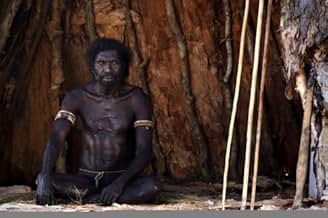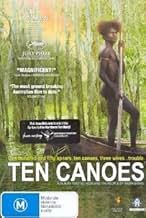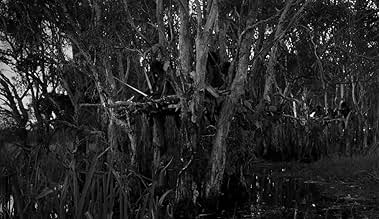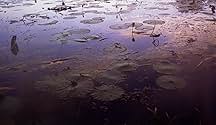Aggiungi una trama nella tua linguaIn Australia's Northern Territory, a man tells us a story of his people and his land. It's about an older man, Minygululu, who has three wives and realizes that his younger brother Dayindi m... Leggi tuttoIn Australia's Northern Territory, a man tells us a story of his people and his land. It's about an older man, Minygululu, who has three wives and realizes that his younger brother Dayindi may try to steal away the youngest wife.In Australia's Northern Territory, a man tells us a story of his people and his land. It's about an older man, Minygululu, who has three wives and realizes that his younger brother Dayindi may try to steal away the youngest wife.
- Regia
- Sceneggiatura
- Star
- Premi
- 17 vittorie e 9 candidature totali
- Dayindi
- (as Jamie Dayindi Gulpilil Dalaithngu)
- …
- The Storyteller
- (as David Gulpilil Ridjimiraril Dalaithngu)
Recensioni in evidenza
Rolf de Heer, a maker of small, quirky and interesting films ("Bad Boy Bubby", "The Old Man Who Read Love Stories", "The Tracker"), probably doesn't subscribe to either notion. In this exquisitely photographed tale from the mythical past he lets the aboriginals of the Arafura wetlands, Arnhem Land, tell their own story. Apart from David Gulpilil, who provides a gentle, teasing voice-over, and his son Jamie, all the parts are played by non-professional actors from the district. Apart from the voice-over, all the dialogue is in the local aboriginal language (don't worry, there are sub-titles).
While on a goose egg hunting trip, Older Brother , who has noticed his younger brother's interest in one of his wives, tells Younger Brother a story from a much earlier time, of another younger brother who yearned after his older brother's wife. Without giving the story away, the moral is "be careful about what you wish for, you might get it", but much happens in between. It becomes evident that these "savages", as well as possessing a robust sense of humor, have a legal system that minimizes the damage done by crimes. It seems that neighboring tribes, whose language our tribe scarcely understands, will play by the same rules. Once honour is satisfied, the matter is at an end. The story gives us an insight as to how aboriginal society remained stable for so long prior to contact with Europeans.
It is hard to comment on the acting, other than to say the characters seem completely authentic. The tribe's sorcerer, for instance, likes to choose a bone to wear in his nose to suit his mood or the occasion, just as your local GP might like to select a bow tie before opening his surgery. But I have to mention Crusoe Kusddal as Ridjimiraril, the older brother in the myth. His language means little to us, but his expression everything.
The scenes on the goose-hunt, which book-end the main story, are in black and white, a tribute to earlier photographers in Arnhem Land, but most of the film is in colour, which does full justice to the landscape. This is no Garden of Eden the necessity to build tree platforms while camping in the swamp is evidence of that (though we see no actual crocodiles). Yet the aborigines manage to live within the environment without despoiling it or each other. Theirs is a patriarchal society but women are protected by the rules as well as by their menfolk. The movie is a fascinating glimpse into the culture, told in a disarmingly humorous fashion, by the people themselves. One should not be too misty-eyed about this the cast probably watch "The Simpsons" via satellite at home but they have given us both a droll tale and some food for thought.
The cinematography here — all the cinematic values — are only slightly apparent and when they declare themselves, it is in the service of the story: switching from subdued color to bright to signal the shift of what story you are in. Otherwise, the camera is either in conventional documentary mode or in space following spirits across landscapes as they voyage from waterhole python ouroboros and back.
What we have here is good old oral storytelling supplemented by image, and highly structured. Essentially everything is told by an offscreen aboriginal narrator, whose convoluted beginning establishes all sorts of narrative pockets that are revisited later. The story is a tree, we are told and in its telling we visit many branches. There is a sort of beginning, but it is nearly too complicated to describe. There is an ending, but no. After a chuckle the narrator tells us he has no idea how it ends.
Ostensibly, the story is told by the off-screen narrator, of a hunting party of aboriginal men, who make ten bark canoes and go hunting and gathering in the swamp. Over that period in the story, a wise man tells a story to his impatient much younger brother. That "inner" story shifts to color. It is supposed to be in a time in between creation and the full solidifying of men on earth. So the characters in the inner story are played by the folks in the outer one, and the main threads are folded together: a matter of the young man's desire for the older brother's youngest wife.
But that is the merest of threads. We are told that the story is a tree. We literally see that tree shorn of bark and made into simple canoes. We literally see our hunters — in both stories — camping in trees. The story seems to ramble. There is sorcery, mystery, charmed turds. There is revenge, jokes, anthropology. Its all of a context. A point of all this is that there cannot be a point in the western sense. There isn't a linear narrative here with a message. There is a walkabout through a storyspace.
The very first event we see tells us this in a remarkable way. Our ten men are walking single file and the last man halts the party. He refuses to be last, he says, because someone is farting. The line is consequently reshuffled. It is a gentle device, one that sets the magic for what "follows," a non-linear shuffle.
The joke at the end has the same form. The last one (the youngest wife) is not how the thing ends.
The entire production, we are told, uses aboriginal talent exclusively.
You want to know the narrative power of carefully folded (meaning here: intuitively structured) narrative? See this.
Ted's Evaluation -- 3 of 3: Worth watching.
Lo sapevi?
- QuizThe title "Ten Canoes" was inspired by a photograph shown to Director Rolf de Heer by Aboriginal actor David Gulpilil. The picture was of group of ten native men in their bark canoes on the Arafura swamp. The photo was taken by anthropologist Dr Donald Thomson who worked in central and north-eastern Arnhem Land seventy years earlier during the mid-1930s.
- Citazioni
The group: [all walking in a line]
Canoeist: Everyone stop!
[all stop and turn]
The Storyteller: That one is Djigirr. Djigirr talk too much, but maybe he heard something.
Canoeist: I refuse to walk at the end. Someone ahead keeps farting.
The group: [laughter] Not me. Not me.
Canoeist: It's you again. You're always so silent. Silent but deadly. Admit it.
Canoeist: Alright, it's me.
Canoeist: You're rotten inside.
Canoeist: I'm rotten inside.
Canoeist: You get to the end of line.
- Versioni alternativeThere are currently three versions of the film:
- (1) the Yolngu languages dialogue version with English subtitles and narration storytelling spoken in English by David Gulpilil;
- (2) the Yolngu languages dialogue version with English subtitles and narration storytelling spoken in Mandalpingu by David Gulpilil;
- (3) the Yolngu language only version without any subtitles
- ConnessioniEdited into Terror Nullius (2018)
I più visti
- How long is Ten Canoes?Powered by Alexa
Dettagli
- Data di uscita
- Paese di origine
- Sito ufficiale
- Lingue
- Celebre anche come
- Ten Canoes
- Luoghi delle riprese
- Aziende produttrici
- Vedi altri crediti dell’azienda su IMDbPro
Botteghino
- Budget
- 2.200.000 A$ (previsto)
- Lordo Stati Uniti e Canada
- 283.654 USD
- Fine settimana di apertura Stati Uniti e Canada
- 14.076 USD
- 3 giu 2007
- Lordo in tutto il mondo
- 3.360.455 USD
- Tempo di esecuzione1 ora 30 minuti
- Colore
- Mix di suoni
- Proporzioni
- 2.35 : 1
Contribuisci a questa pagina




















